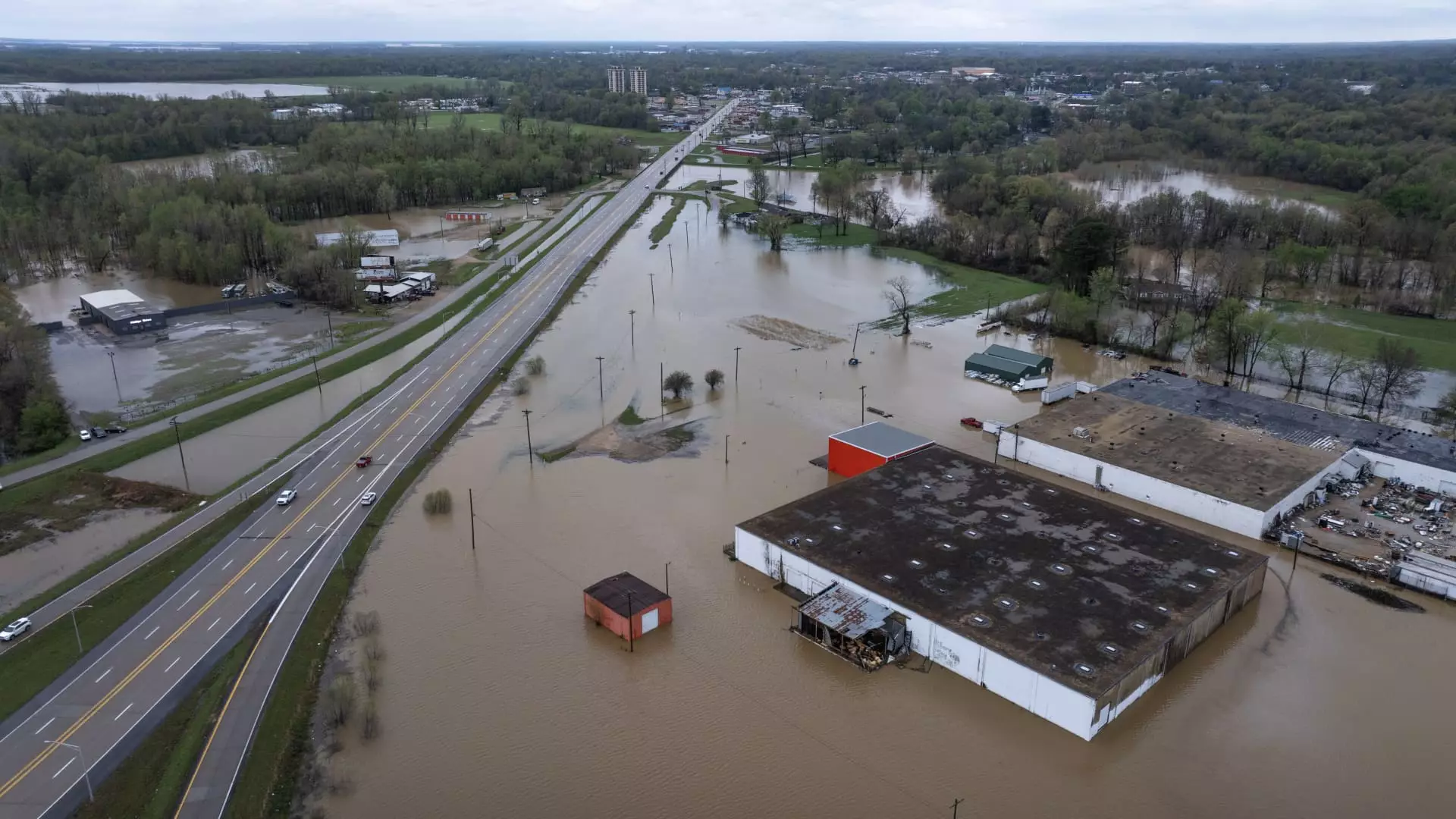In the wake of nature’s fury, the Northeast is bracing itself for yet another deluge as heavy rains threaten to exacerbate already desperate conditions. This isn’t just a meteorological event; it’s a stark reminder of the overwhelming power of climate change and our growing impotence in the face of its reality. Just last week, spring storms ravaged multiple states, claiming 21 lives and leaving communities grappling with devastating floods. The loss of life, the destruction of property, and the upheaval of entire communities are not just statistics; they are reflections of our ongoing failure to address climate change.
With flood advisories posted for almost 9 million residents in Georgia and eastern Alabama, my heart is heavy with the thought of those waking up to the sight of their submerged homes, their lives derailed overnight. Flooding isn’t simply an inconvenience; it’s a catastrophic event that exposes the delicate balance between human existence and the natural world we’ve, at times recklessly, engineered around.
The Human Cost of Indifference
In Kentucky, where the devastation has reached critical levels, towns like Dawson Springs and Owensboro are bearing the brunt of this mismanaged natural disaster. Reports indicate that in less than 24 hours, river levels have risen by 5 feet, overwhelming local infrastructures and wreaking havoc in low-lying neighborhoods. The unheeded warnings and inadequate preparation reveal a generational lapse in our understanding of ecological patterns. For many, this flooding represents a loss far greater than material possessions; it’s the loss of a way of life, a community that has thrived on the very land that now betrays them.
Local officials are describing this as a once-in-a-generation storm — a chilling characterization that reveals either our complacency or our slipshod approach to climate preparedness. As Chad Womack, assistant chief of the Anderson County Fire Department, lamented, stories of complete loss are becoming all too common. The notion that such a catastrophic event can strike without warning illustrates the dire consequences of ignoring climate change policies for too long.
The Tipping Point of Climate Awareness
The recent string of severe weather events, including 93 preliminary tornadoes, is a loud scream for attention that we cannot afford to ignore. The United States recorded 10 consecutive days with tornado activity during what is typically a calmer period of the year. These statistics are not just alarming; they signify a fundamental shift in our climate that demands immediate action. We can no longer treat these disasters as isolated incidents, but rather as the new normal that reveals the ever-intensifying impacts of climate change.
Moreover, we must reflect on our societal response to such calamities. Time and again, we witness communities rallying to assist one another, showcasing resilience in times of despair. Yet we must ask ourselves: Is this all the response we can muster? Shouldn’t the first line of defense be proactive reform rather than reactive support? The debate surrounding climate policy, infrastructure improvement, and investment in sustainable practices cannot linger in limbo any longer. If we persist in viewing these occurrences as anomalies, we risk plunging headlong into despair when what is needed is actionable change.
The Call for Urgent Action
As weather patterns intensify across the southern regions, with rainfall predicted through the Gulf Coast and even light snow making appearances in parts of New England, the urgency of this situation cannot be overstated. Every drop of rain is a stark reminder that we are losing ground through both inaction and negligence. It’s not merely about restoring what has been lost; it’s about preventing future calamities.
The compounding threat of flooding, rising rivers, and shifting weather patterns entrenches the need for systemic change in how we approach environmental issues as a society. We are at a juncture where immediate and soaring voices demanding action can no longer be drowned out by debates over the science. Every community impacted by this flooding is a testament to our failure — and it is high time that we translate this urgency into a robust climate action agenda that prioritizes our planet’s health for generations to come.
Let us recognize the cost of complacency. The devastation seen in the heart of our nation is not just a warning; it is a clarion call to elevate our climate commitment beyond mere discussions into decisive, impactful action.

Leave a Reply